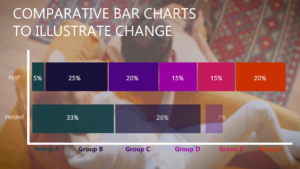Carli Rossi, Relish’s Field Manager recently attended the MRS Equality Summit 2024, bringing back invaluable insights into the significance and implementation of inclusive research practices. Here’s a summary of the key points and actionable steps discussed during the summit:
The Importance of Inclusive Research
Up to 30% of insights are lost due to non-inclusive research, significantly impacting the effectiveness and depth of industry insights. Non-inclusive research overlooks the perspectives of diverse populations, resulting in a narrower understanding of consumer behaviours and preferences.
Diverse and inclusive research practices lead to more robust and insightful results. They ensure that the voices of minority and marginalized groups are heard and accurately represented, contributing to a more comprehensive understanding of the market. By incorporating lessons from diverse groups, brands can develop products and services that resonate with a broader audience.
Best Practices for Designing Inclusive Research
- Identify and Challenge Biases: Personal and organizational biases can skew research results. It’s essential to recognize and address these biases by gathering diverse perspectives early in the research process.
- Strategic Inclusivity: This involves recruiting participants from various backgrounds, including different ethnicities, genders, sexual orientations, and abilities. Strategically decide on participant sampling to balance inclusivity with budget constraints.
- Accessibility: Make sure research materials and environments are accessible to all participants. Use diverse data collection methods that accommodate various modes of communication and cognitive processing.
- Representation and Authenticity: Ensure that all voices are authentically represented. This involves paying close attention to how participants describe themselves and ensuring that their voices are accurately represented in the research findings.
- Long-term Vision: Consider inclusivity not just for a single study, but across all research work for each client or the company. This involves embedding inclusive practices into the organization’s culture and operations, ensuring that all research consistently reflects diverse voices and perspectives.



